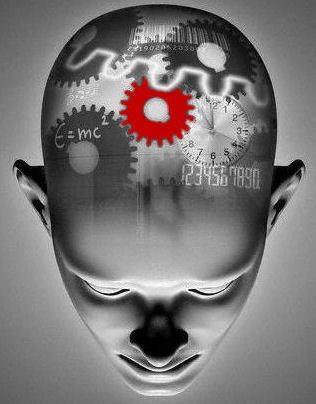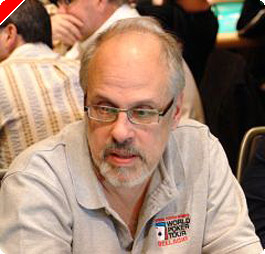
By Dominic 'Palindrom' Bergeron.
There has always been a debate at poker the role of mathematics versus that of psychology. Some people will say that psychology is much more important and others that all relate to mathematics. Finally, others will try to establish a percentage of the role of each. This article is an essay in order to clarify the debate.
My assumption is an application to the poker from the point of view that everything in the universe is quantifiable and measurable. So-called randomness is in fact data that could not be measured. Thus, I defend the idea that poker, everything relies on mathematics. However, since the human being is not omniscient and calculation capabilities are limited, he needs to overcome shortcomings by estimates.
I believe that any confusion in this debate is that our language is so badly done, and that the words 'mathematical' and 'psychology' can have several meanings. The sense that I suggest the following: psychology in poker is the ability to harvest with accuracy of the data as well as to transmit false data to our opponents while mathematics would be the ability to properly process various data. The two being aspects that make up what might be called a "decision-making process". Finally, consciousness would be the ability to translate the data in figures and raise the decision-making process.
However, the world calls sometimes mathematical conscious decision-making and psychological, unconscious decision-making. However, both are the same thing, although perceived differently and treated with different finesse.
Actant, a poker player can say: 'I'll pretend to be strong, while my hand is weak. It's going to frustrate my opponent, I am really gifted me, on the side of Psychology! "." The unconscious process is to establish a correlation between behavior and reaction, to involve a statistical frequency and try to change it. This can be summarised as follows: "100% of the time that I look quite usually I am strong, this frequency is easily noticeable by my opponent and probably incorrect since it goes down all the time except when he beats me." So I have to change this frequency to make it more easily readable by my opponent."
What kind of players demand more psychological capacity to analyze it? An opponent who is really strong on the 10,000 hands where it seems strong, or even an opponent who is 8170 hands on 10,000. Both are very accurate numbers, except that the human mind will be much more difficult to analyse precisely the 8170 times 10,000 and risk estimate this frequency. This estimate may be mathematically aware in some and unconscious in others. Some players in this situation will think thus: "he can bluff me because sometimes it does, but my instinct tells me that this time he has his game". Others go further and say: "in this situation, my opponent is aware that the bluff from time to time is a good game and the practice, but since it is aware that I know, it must vary his game, but without too much deviate from ideal bluffing frequency which is 30%. As it amazed me the last two times in this spot and that this player does not always dare make the same game, I believe that the chances are diminished this time around, I estimated at 18%. Since it costs $ 30 and the pot is $ 70, I layer my hand"! The probability that an opponent is bluffing us can be mathematical equations by entering several parameters: the ideal frequency of bluff depending on the size of the pot, the trend of my opponent to practicing or depart from this frequency, the frequency with which my opponent changes these decisions according to the latest hands played, the frequency with which when my opponent winks of eyes this is a bluffetc.
Therefore, the learning poker consists in large part to become aware and subdue the unconscious processes that guide our decisions, develop his memory and the sense of observation to have as many data as possible and to translate all this in mathematical equation to thus not make the guesstimates, but mathematically more precise estimates and correct possible. On the other hand, it is far from an easy task, I can easily imagine that this exceeds the legion of players who are even unable to solve basic problems, like the chances of having 3 cards such on the flop. These players will tend to identify as 'psychological' many aspects of poker since they do not have enough sophisticated mathematics and use their intuition to solve.
Speaking of refinement of mathematics, it should also be aware that many of the decisions to be taken Poker simply exceed human capabilities to quickly and without computer help (many softwares can be a great help to implement figures some psychological aspects of poker) and that, in such circumstances, should have already done the calculations at home and to recall, or either that intuition becomes a best asset.
It is therefore essential to devote time to study situations that it is impossible to solve in 10 seconds during our play time. Behind most of the decisions you make in 5-10 seconds, there should be long hours of studies to maintain the reflex to make good decisions, a little like elite athletes who will train for hours on one aspect of his discipline.
I believe as well that work to make the decisions that are taken at the poker, and study in order to make it more mathematically as readable as possible instead of leaving our intuition and our psychology. I know that this is not given for all and that there are limits to human abilities that make the intuition will always have its role, but a clear equation will always lead to a better decision than an intuitive approximation.
You can discuss this article by clicking the following link: psychology in poker - Article of Palindrom




